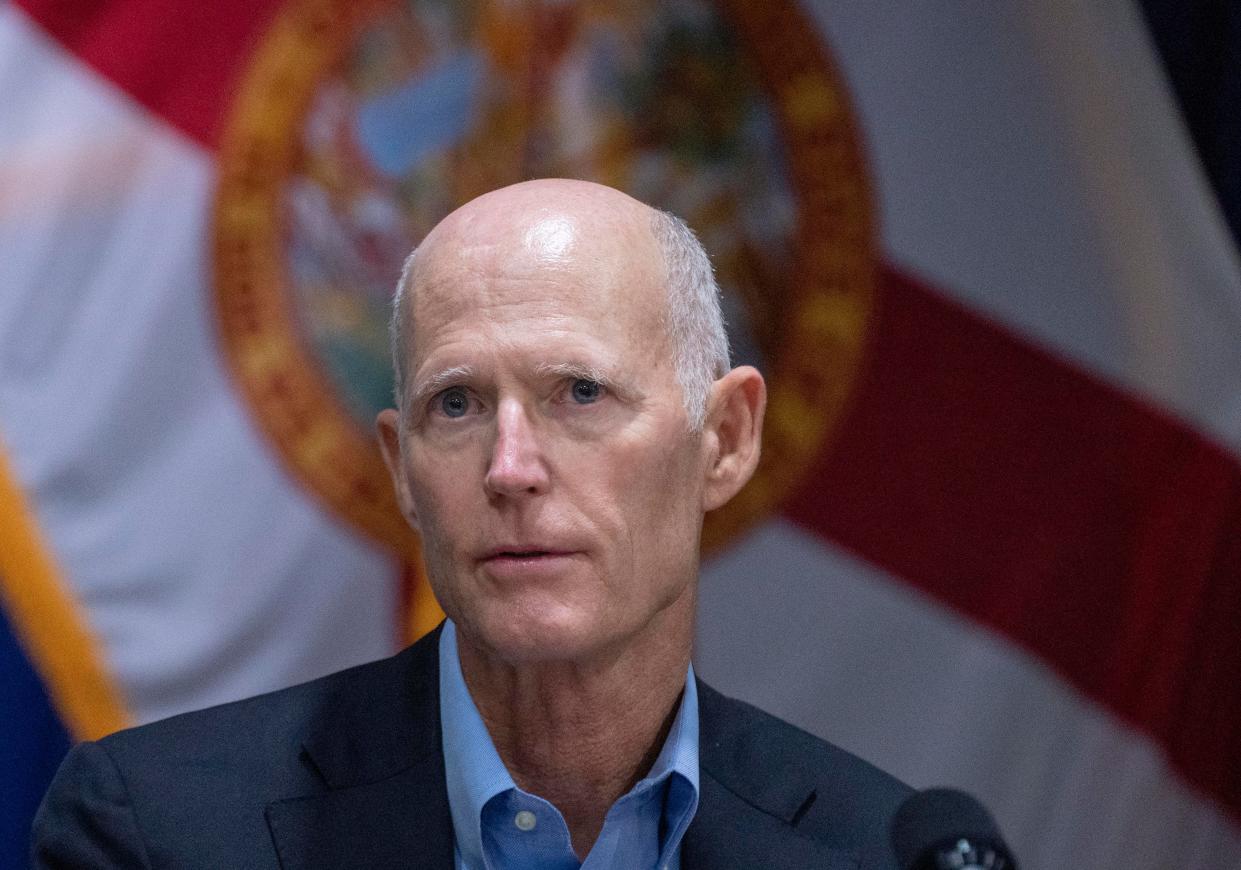US needs leader who will cut spending, rebuild middle class | Opinion

- Oops!Something went wrong.Please try again later.
The United States is rapidly approaching an inflection point. In 2022, the federal government outspent revenue by $1.8 trillion. The trade deficit surged to $1.18 trillion in 2022, leaving us dependent on foreign suppliers like China for critical goods. China currently produces 63% of rare earth minerals whilst holding 37% of total global reserves, critical in manufacturing of cell phones, semiconductors, and defense related products. Even more worrisome, 81% of active pharmaceutical ingredients consumed in the U.S. come from our global competitors.
On the supply side, we continue to see a decline in high-wage industries like manufacturing − an industry that has lost over 5 million jobs in the past 25 years, many of which are now in China. Debt is growing, revenue is shrinking, production is sputtering, and our citizens are continually being asked to do more with less.
To face these challenges, the United States needs leaders who are willing to invest in economic opportunity and foster job growth. Our country is searching for leaders who are willing to prioritize domestic industries, restore our nation’s ability to produce, and rebuild the middle class. These are all priorities for Senator Rick Scott, whose two terms as governor of Florida show us exactly what kind of leader this country needs.
Economic Growth
During his eight years in office (2011-2019), Gov. Scott oversaw an annualized actual GDP growth of 3.3%. This was 38.6% higher than the U.S. average of 2.4% during the same period. In 2011, Scott inherited an unemployment rate of 10%, which was 12% higher than the national rate. By the time he left office, Florida had cut that number down to 3.2% − roughly 13% lower than the national rate at that time. Scott accomplished that, in part, by growing Florida’s production industries. Under his leadership, the number of manufacturing employees in Florida grew by 23%, outpacing the national growth rate in this sector by over 147%. Similarly, construction employees in the state grew 68.5%, which was nearly double the rate of construction growth across the nation.
Overall, Scott added approximately 1.6 million jobs, growing Florida’s employment base at an annualized growth of 2.22%. This was 48% greater than the U.S. average for those eight years, as well as 28% greater than that of California.
Fiscal Responsibility
Growing the economy is necessary, but no amount of revenue enhancement can compensate for fiscal irresponsibility. While overspending and out-of-control debt financing have become the norm in Washington, D.C., Scott managed to reduce Florida’s debt by 40.1%, outpacing every other state (including D.C.) in debt reduction over 2011-2019. To put that in perspective: During those eight years when Florida cut its debt load by nearly half, the U.S. public debt increased by 37.1%.
Social and Household Impact
The interest payments on our national debt were $475 billion in 2022 and are projected to total $640 billion this year. That’s enough to cover veterans' benefits and the Social Security shortfall combined. According to the congressional budget office, that interest is projected to reach $1.4 trillion in the next decade. As Scott pointed out in a 2019 letter to New Jersey governor, Phil Murphy, increasing debts place a great burden on households and individuals. Ultimately, they are the ones who service our debt. Every dollar spent carrying our national note is a dollar that could be spent elsewhere.
By getting the state’s fiscal house in order and growing its economy, Scott and his team were able to improve the everyday lives of Floridians, particularly in the areas of poverty alleviation, crime prevention, and education:
Poverty: From 2011 to 2019, the percentage of people living below the poverty line decreased by 25.3% in Florida. That rate is 12.1% better than the rest of the nation. For Black and Hispanic families, poverty declined by 25.9% and 22% respectively.
Crime: Under Scott, violent crime rates dropped by 26.5%, which was four times better than the rest of the country. Robberies decreased by 43.8% (55.3% better than the national average). While the nation in general (and California, in particular) saw increased cases of assault, Florida enjoyed a 25.8% decrease.
Education: In 2011, Florida ranked 41st in the nation with a graduation rate of 69%. By the time Scott left office, Florida had climbed to the No. 9 spot with a rate of 86.1%. Scott’s administration also safeguarded the affordability and quality of higher education, earning Florida the honor of being the best state in the nation for higher education by U.S. News and World Report in both 2017 and 2018.
Due to the impact of Scott’s policy decisions, Florida’s current governor, Ron DeSantis, inherited a golden goose. Sen. Scott’s performance as governor and the legacy he left should be the benchmark by which we judge the effectiveness of other U.S. politicians. As our national debt balloons and GDP crumbles, we need leaders like Scott with the commitment and competency to grow our economy, control spending, rebuild the middle class, and improve life for every household in America.
Charles Shor is the former president and CEO of Duro Bag and founder of the Charles L. Shor Foundation for Epilepsy Research.

This article originally appeared on Cincinnati Enquirer: US needs leader who will cut spending, rebuild middle class | Opinion

